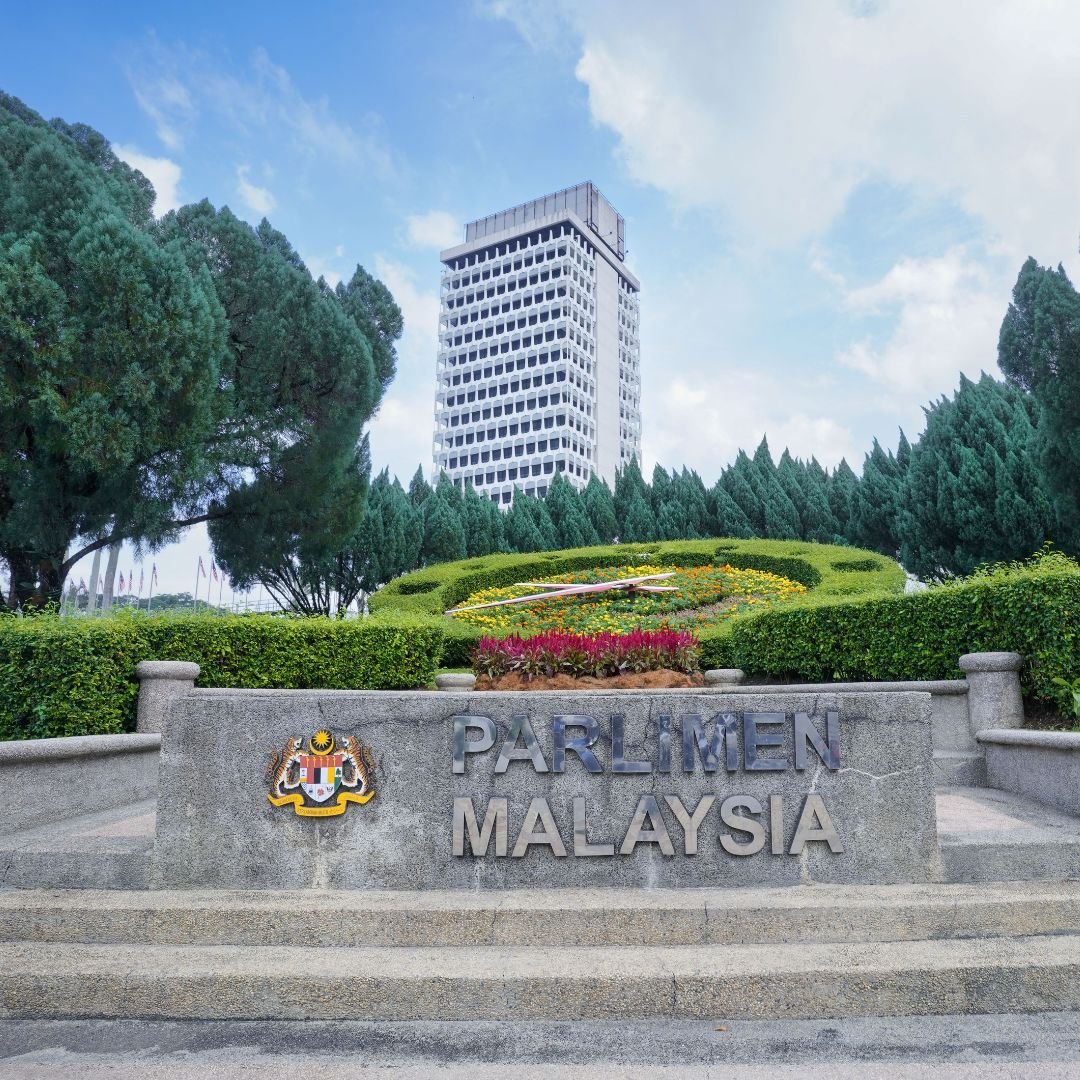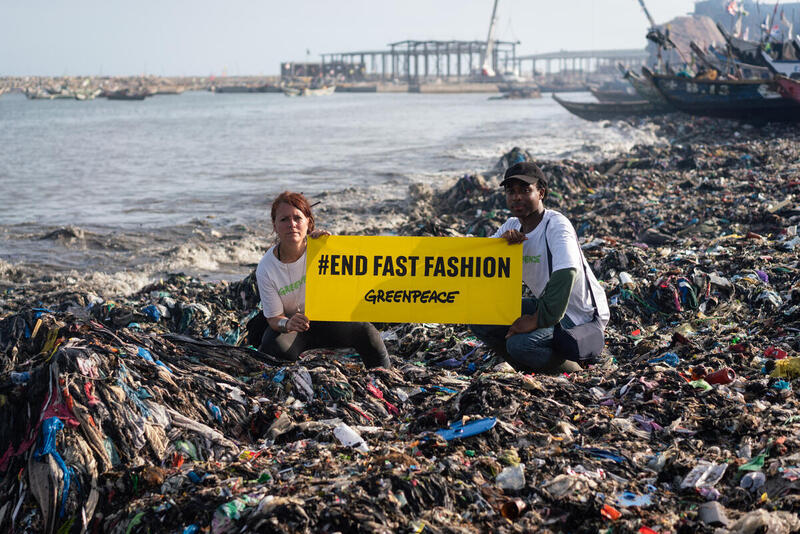Greenpeace Malaysia calls for further law reforms to strengthen climate action and uphold human rights to a clean, safe, healthy, and sustainable environment for all citizens
Kuala Lumpur, Malaysia – To commemorate Human Rights Day, Greenpeace Malaysia collaborates with Oscar Lee from co2_ karbondioksida on a mural, taking a strong stance in advocating for equal access to a clean, safe, healthy, and sustainable environment for all citizens in Malaysia. Located at Jalan Petaling, the mural represents the connection between health and basic human rights to a clean environment with a depiction of the potential hazard breathing in air pollution and haze have on our future generations as a haze emergency day could be as deadly as smoking 23 cigarettes in one day.

The Environmental Quality (Amendment) Bill 2023 introduced on November 16 is of great importance as it guarantees the safeguarding of our fundamental human rights and protects Malaysians from anthropogenic environmental threats. The bill, however, exhibits significant parallels with its predecessor from 2022. Specifically, its primary objective is to strengthen the severity of sanctions for violations under the Environmental Quality Act of 1974 as opposed to strengthening overall policies and regulations.
The bill also establishes the role of a Director General for Environmental Quality, who will oversee and coordinate all activities relating to the release of waste into the environment. This includes responsibilities such as pollution control and efforts to improve environmental quality.
Greenpeace Malaysia Clean Environment Campaigner AnnJil Chong said:
“We will continue to demand for the recognition of a clean environment as a fundamental human right. Every individual, regardless of their background, deserves a fair and sustainable future. Yearly reports of disastrous floods are on the rise, causing significant concerns and anxiety among Malaysians regarding the preservation of human rights in the environment. This prompts inquiries into potential causes, including climate change, fatal heatwaves and floods, plastic pollution, drainage system failures, and deficiencies in waste management systems. As citizens, we all have the right to understand the underlying causes of these incidents and contribute to efforts aimed at mitigating and preventing them.”
Therefore, Greenpeace Malaysia calls for a thorough assessment of multiple aspects in order to protect our human rights during the initial stage of reviewing the legislation:
1. Merely focusing on penalties is not sufficient
Merely placing a significant emphasis on enforcement measures in the Environmental Quality (Amendment) Bill 2023 is insufficient. It is recommended that the government incorporates amendments to strengthen standards for preventing and monitoring environmental pollution. These standards should aim to establish a more robust framework for effectively regulating and monitoring industries, businesses, and individuals in their efforts to reduce pollution and promote sustainable practices and climate action, ultimately culminating in achieving the objective of the bill.
2. Strengthening the guidelines for Environmental Impact Assessment (EIA)
The guidelines for EIA should be improved to ensure enforceability, impartiality, transparency, and active public involvement. Currently, the practice of EIA guidelines involves private developers hiring consultants to conduct EIAs for their projects and produce assessment reports. These reports have often been criticised to be mere window-dressing and favourable towards the developers who pay for them. To ensure fairness and eliminate potential bias, we strongly recommend the following:
The responsibility of hiring consultants to conduct EIA should rest with the Department of Environment (DoE) rather than the developer.
- The developer, on the other hand, should cover the expenses related to these consultancy services.
- Increasing transparency and making the EIA process accessible to the public, environmental NGOs, interest groups, and elected representatives.
- Modify the methods of public display in order to foster increased engagement from the public and greater participation from stakeholders.
3. Integrate the principles of CE, EPR, and ZWH into the policy framework
The concept of a circular economy (CE), extended producer responsibility (EPR), and zero waste hierarchy (ZWH) should be incorporated into pollution control measures. Taking e-waste as an example, to date, the management of household e-waste relies primarily on voluntary initiatives, lacking regulated guidelines. This lack of standardisation makes it challenging to track, recover, and accurately calculate material recovery rates.
E-waste, which encompasses a wide range of components including batteries, mercury switches, and cathode-ray tube glass, poses significant environmental and health risks due to the presence of hazardous substances such as cadmium, lead, and mercury. Hence, the government should take appropriate measures by:
- Expanding the definition of e-waste to encompass a more comprehensive list of electronics (based on the EU classification), the goal is to educate and encourage consumers about which electronics they can recycle.
- Incorporating the concept of CE and recognising the non-renewable raw materials present in e-waste as a critical ‘source of secondary raw materials.’
- Advocating for the implementation of an ERP programme, which encourages producers and importers of electronic goods to share the responsibility of collecting and treating these goods.
- Introducing the ZWH, which prioritises actions such as reducing e-waste generation through product design innovations, promoting repair and reuse options to extend product lifespans, and implementing efficient recycling processes to recover valuable materials from discarded electronics.
4. Setting up a fund to promote efficient environmental governance
Penalties collected from environmental offences should be channelled back to environmental conservation, rehabilitation, or improvement. One efficient and effective approach to incentivise states to fulfil their environmental obligations is by offering motivational incentives.
By integrating internationally recognised environmental performance indicators into the fund, authorities can benchmark their performance against state standards or previous periods. Regularly reviewing these indicators enables authorities to consistently enhance their processes and ensure they are on track to achieve their goals. This contributes to improving environmental governance at both the state and national levels.



